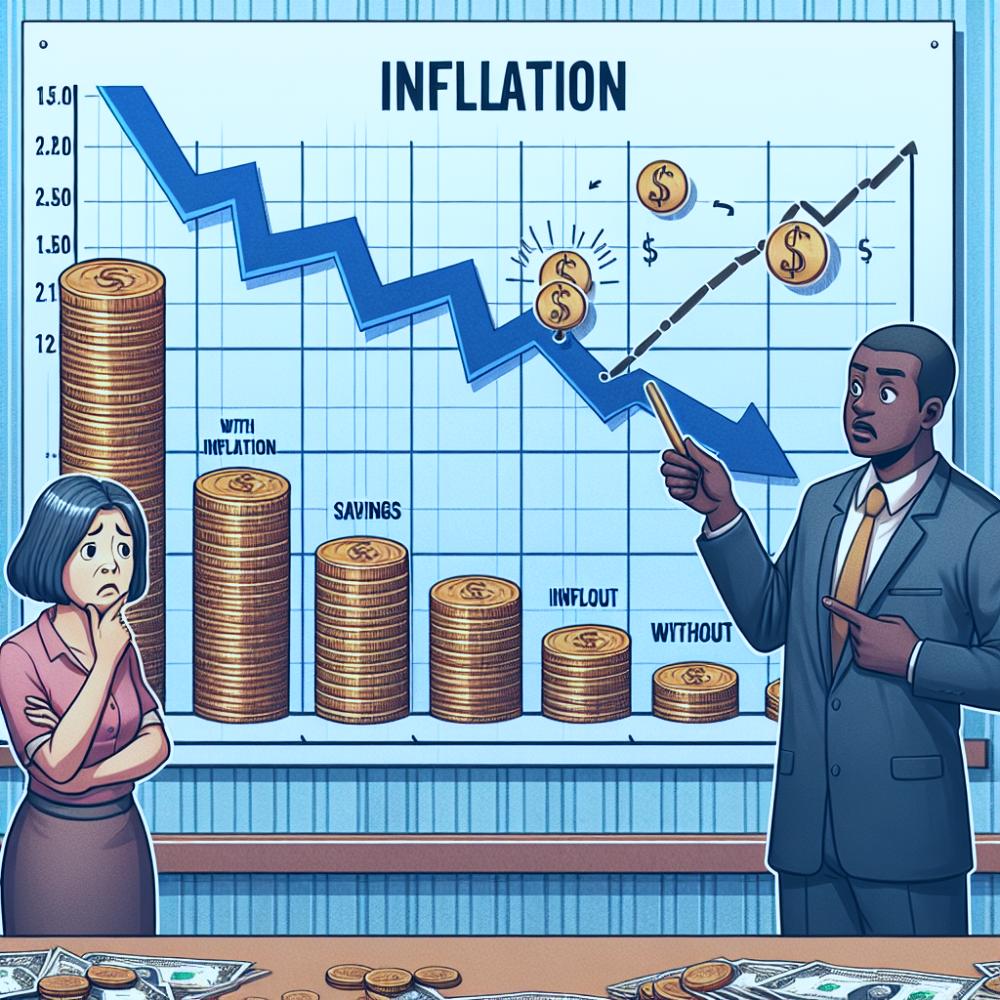
Introduction
In the world of finance, inflation is a term that often sparks a sense of uncertainty and worry. Simply put, inflation refers to the rate at which the general level of prices for goods and services is rising and subsequently, purchasing power is falling. It is an economic phenomenon that has a significant bearing on your personal finances, particularly your savings. This article explores the impact of inflation on your savings and how to navigate this often unpredictable financial climate.
Understanding Inflation
Before we delve into how inflation impacts your savings, it's crucial to understand what inflation entails. It is generally measured by the Consumer Price Index (CPI), which tracks the cost of a variety of consumer goods and services over a period. When the CPI rises, it signifies inflation, indicating that prices, on average, are increasing.
Inflation is a natural occurrence in a growing economy. However, when it increases at a faster pace than your income, it can erode your purchasing power. This means the amount of goods or services your money can buy reduces, affecting your standard of living.
The Impact of Inflation on Your Savings
Inflation can have two primary effects on your savings
eroding purchasing power and diminishing real returns.
Eroding Purchasing Power
This is the most direct impact of inflation on your savings. As the cost of goods and services increases due to inflation, the value of money decreases. This means that the money you saved yesterday might not have the same purchasing power today. If the inflation rate surpasses the interest rate you're earning on your savings, your savings' value in real terms will diminish over time.
Diminishing Real Returns
High inflation can also eat into the real returns on your savings. The real return is the return on an investment after adjusting for inflation. For example, if you're earning a 3% interest rate on your savings account, but inflation is running at 2%, your real return is only 1%.
Protecting Your Savings from Inflation
While inflation can negatively impact your savings, there are strategies you can employ to safeguard your money.
Inflation-Protected Securities
These are government-issued bonds designed to help protect investors from inflation. In the U.S, these are known as Treasury Inflation-Protected Securities (TIPS). These bonds pay a fixed interest rate, and their principal value adjusts with inflation.
Invest in Assets with Real Returns
Assets like stocks, real estate, or commodities like gold often provide a hedge against inflation. These investments tend to increase in value over time and can potentially offer returns that outpace inflation.
High-Interest Savings Accounts
Seek out savings accounts that offer interest rates higher than the current rate of inflation. This way, you can ensure that your savings grow at a pace that keeps up with or surpasses inflation.
Invest in Mutual Funds
Mutual funds that invest in a diversified portfolio of stocks and bonds can also offer protection against inflation. They provide the benefit of professional management and diversification, which can help mitigate risks.
Conclusion
Inflation is an economic reality that every saver and investor must contend with. While it's true that inflation can erode the value of your savings, understanding its impact and taking proactive measures can help you protect your financial future. By investing wisely and keeping an eye on the inflation rate, you can ensure that your purchasing power and the real returns on your savings are preserved.



















